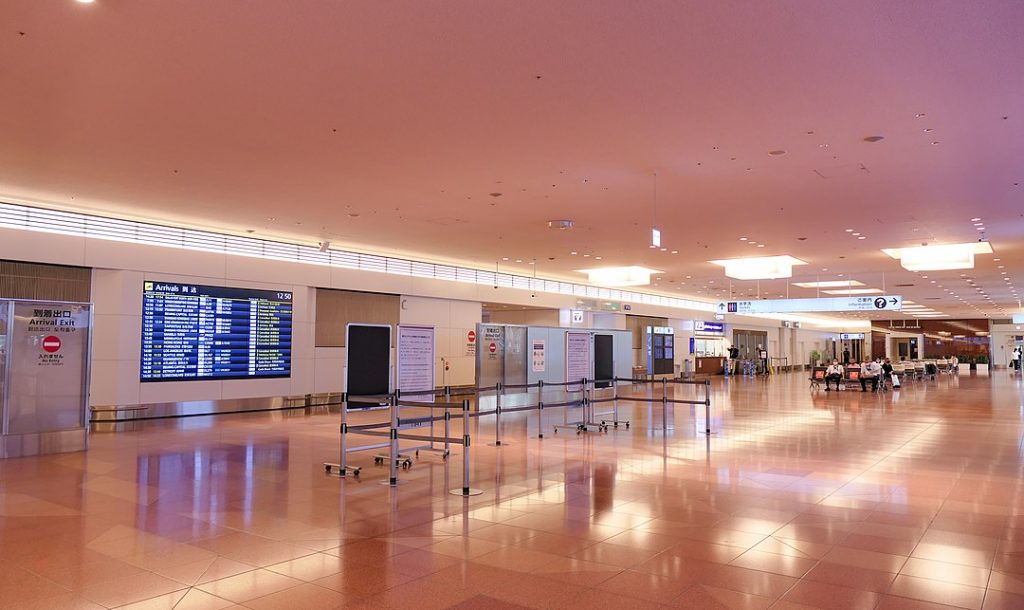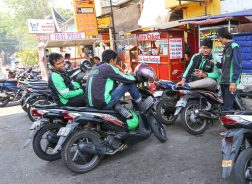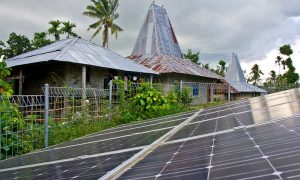COVID-19 has greatly affected the Indonesian Technical Intern Trainee Program in Japan, for those currently in Japan and for prospective pre-departure participants in Indonesia, and diminishing the enthusiasm for the prospective new type of SSW/ Special Skill workers visa. My interviews show that many prospective interns, who have passed examinations and are ready to leave for Japan, must postpone or even cancel their travel due to Japan’s closed border policy. Many have spent tens of millions of Rupiah on pre-departure preparation and training, but it is not clear when they will be dispatched to Japan and the money cannot be returned. Some have extended their language training period at the sending institution in Indonesia while they wait for news of border opening, paying additional fees. In spite of this, the sending institutions have not stopped persuasively and optimistically promoting the internship and SSW programs.
Due to the high demand for productive workers in Japan, in April 2019 the Japanese government revised its migration policy, opening up opportunities for foreign workers from developing countries like Indonesia to obtain a Special Skills Work (SSW) visa in Japan, called the “Tokutei Ginou” visa. To establish this cooperation, the Ministry of Labor of the Republic of Indonesia signed the agreement on Tuesday, June 25, 2019.
In the same year the Ministry of Manpower of Indonesia, in cooperation with the International Manpower Development Organization (IM Japan), a Japanese public interest incorporated foundation, agreed to continue the deployment of workers under the Technical Intern Program (TITP), and to even increase the number of Indonesian technical intern trainees. The TITP itself officially started in 1993 with the original purpose of technology transfer and to reduce undocumented immigrants. The program’s participants come from across Asia, with Vietnam sending 196,001 people or 53.5% of the program participants, followed by China at 69,795, or 19.1%, and Indonesia with 32,508 people, or 8.9%. To strengthen this cooperation, the Indonesian Ministry of Manpower prepared new training facilities for prospective TITP migrant workers. Ida Fauziyah, the Indonesian Minister of Manpower, said the two parties had agreed that Indonesia would increase its deployment by 5,000 more technical intern trainees each year over the next two to three years.
Based on the report of HRWG (human rights watch group) research, before the pandemic, the pre-departure fees had become a serious problem on the TITP program. There are many rogue private sending institutions that have overcharged for pre-departure fees, retaining private documents, enforcing placement fees with unreasonable value, and practicing debt bondage through the facilitation of consumer credit in order to attract and finance prospective workers to join the program. With the pandemic, fantastic advertisements promoting internship programs and SSW visas have mushroomed. One prospective SSW participant, stated in an interview:
Legislative change and consumer consciousness are key to protecting gig-workers from digital exploitation.
Indonesian gig workers: the quest for labour-protection
“Many prospective workers feel cheated by the current conditions, but the sending institution instructs newcomers to apply for SSW, and takes advantage of the closed [Japanese] border, by directing these prospective participants to study Japanese language longer at their institution until they can pass Japanese N4, with simplified requirements, and the lure of a higher salary. But [they] do not provide any explanation regarding the consequences, laws, and rights that we must understand as workers.” (RP, Bekasi, 2022)
Trainees already in Japan have also been affected many problems during the COVID-19 pandemic, including losing their jobs, inadequate housing facilities, being sent home when their employers went bankrupt, or being unable to go home due to uncertain conditions, etc. Hence the Japanese Immigration Agency promised to collaborate with ministries and agencies to re-employ trainees on new visas, especially for field struggling to fill vacancies due to closed borders
In the end, COVID-19 had an impact on many trainees who then continued their stay in Japan by changing their visa to SSW visas. One interviewee stated that his decision to continue his stay with an SSW visa was because going home in a pandemic condition was not attractive either:
“I don’t know what to do in Indonesia either, looking for work is also difficult everywhere, so I think it’s better to continue my stay in Japan. At first, I hope that I can get a different company because the current place has long working hours and I can’t take a day off. I feel tired. But unfortunately, I don’t know where to look for and find a new company, and the company that I’m working for now needs people. Instead of going home in the COVID situation, I think it’s better to take the offer, even though I don’t understand this new visa status, such as what my rights are, because the contract is written in Japanese and the contract letter was kept by the company and company doesn’t explain anything…we don’t have any intermediaries anymore, I feel so confused.” (IA, Osaka, 2021)
Given these conditions, migrant workers, most of whom dream of crossing into greener pastures, are disproportionately vulnerable to the effects of the pandemic due to inadequate and overcrowded living conditions, limited access to health care, general services, poor working conditions, and an exploitative workforce. In addition, access to information is hampered by irresponsible parties for the sake of reaping economic benefit. However, at the moment, irresponsible sending agencies in Indonesia and stakeholders in Japan are still finding ways to manipulate and take advantage of a precarious cohort of migrant workers.
 Facebook
Facebook  Twitter
Twitter  Soundcloud
Soundcloud  Youtube
Youtube  Rss
Rss 



